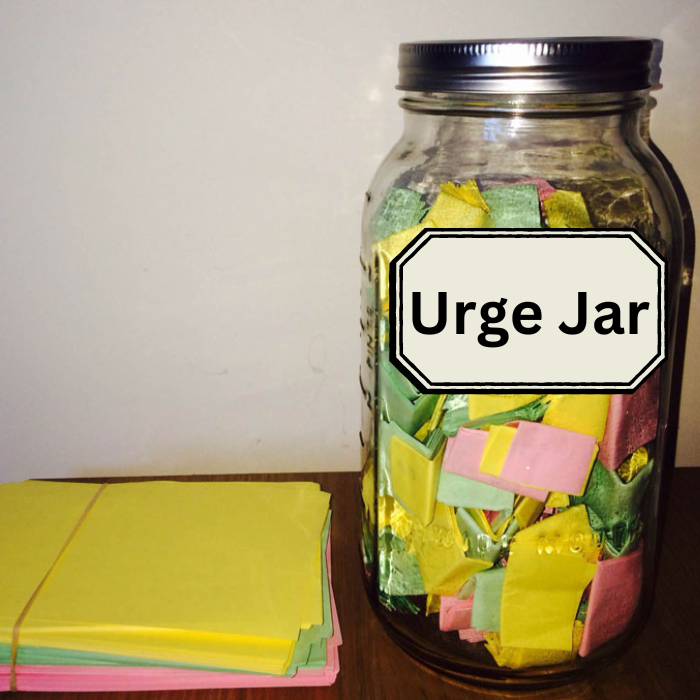[Guest blog by Rick Kuplinski, SMART facilitator in Henderson NV]
Cognitive distortions are thoughts that cause us to perceive reality inaccurately. These thinking patterns, engaged in habitually, can reinforce negative emotions and thoughts. During difficult circumstances, these distorted thoughts can contribute to an overall negative outlook on the world and a depressive or anxious mental state. Challenging and changing cognitive distortions is a key element of behavioral therapy, which is a foundation of SMART Recovery.
Boredom is a time when we are vulnerable to an “Attack of the Cognitive Distortions,” making times of quiet inactivity uncomfortable, unsettling, or inducing anxiety. In active addiction, times of boredom can be like Pavlov’s bell calling us to drink, use, or act out. In recovery, boredom can lead to unhelpful thoughts that might lead to urges that might result in unwanted recurrence of previous behavior.
Many people find it helpful to reduce the discomfort of boredom by changing our thinking about the condition itself. We ask ourselves: Might we distort the reality of boredom? Do we sometimes engage in thinking that makes boredom unnecessarily difficult? For example, sometimes we may:
Open the gate for the P.I.G. (Problem of Instant Gratification) at the first sign of impending ennui. “Awfulizing” or “catastrophizing” is the cognitive distortion of projecting the worst outcome to something before it has even occurred. When applied to boredom, we may find ourselves preparing to give in to the impulse to seek instant relief by making a run to the liquor store, dispensary, or dealer . . . just in case. Instead, we would be better to ready our resolve to approach the situation in a manner more consistent with our SMART Recovery training. Here’s where it is wise to dust off the handbook, re-examine our CBAs and HOVs, do a DIBs or an ABC, run through our list of go-to urge coping strategies . . . whatever it takes to keep the P.I.G. in its pen.
Refuse to accept that periods of boredom are a natural part of the human condition. Where is it written in the laws of the universe that humans will never be bored? When has it never not been as normal and regular to be inactive as it is to be in motion? Cave dwellers, when not focused on survival, surely had to sit still with their primitive thoughts. Agrarian societies had down time between all the sowing and the reaping. Even our great-grandparents, who walked uphill to school both ways, likely experienced boredom worthy of The Greatest Generation. And so it goes with all those who followed: Boomers, Xers, Millennials, Generation Z, Alphas, and so on. To believe that we should not experience boredom regularly is to believe that we alone have evolved differently from the rest of humankind. This is distorted thinking.
Associate boredom with laziness, feelings of guilt, or as a sign of weakness or failure. Boredom does not define us any more than do our personal best periods of peak busy-ness. To tell ourselves differently is distorting a natural and temporary condition into something that is untrue, illogical, and capable of doing us more harm than good. These are the very hallmarks of irrational (or unhelpful) thinking.
Make unfair and useless comparisons between our bored selves and all the people we imagine are out there somewhere doing better things. This is like the two points above. Except that now other people get sucked into our cognitive distortion when we think that they must be doing things more engaging, entertaining, useful, productive, etc. (I wonder if those people think of us when they are bored?)
Believe that the only relief for boredom is to stay impossibly busy. Our first instinct is often to think that the solution to boredom is to get busy (or to not ever stop being busy in the first place). Not a bad instinct—but also likely impossible to sustain all the time and forever. Therefore, it is healthy to make peace (to accept) that there will be times when we have run out of things to do or chose not to do them for a variety of valid reasons. For some of us, the hardest part is to be as good at not being busy as we are on being hyperactive.
Rely too heavily on technology as our “go-to” source of boredom relief. I do not advocate going back to when we didn’t have lightning fast internet connections everywhere and a plethora of electronic gadgets that talk, sing, and dance for us on command. But consider this from a July 13, 2021, article in Mental Health News titled Social Media Doesn't Alleviate Boredom: “While the convenience is undeniable, new research makes it clear that mindlessly checking our phones and social media profiles has become the fast food of fuel for the mind, providing for the most part only empty calories and leaving us even less satisfied than before. Checking your phone, specifically social media, can feel like an easy way to pass the time when you're bored. But a recent study reveals that individuals who used their phones to alleviate boredom ended up feeling worse afterward. Allowing for bouts of boredom, or at least opting for time spent outside your phone, can boost mood and creativity.”
By accepting that sometimes we will be bored, and that it's okay to be bored, we're better equipped to deal with any resulting cognitive distortion and continue on our path of recovery.
To find and in-person or online meeting go to the “Meetings” tab at www.smartrecovery.org




